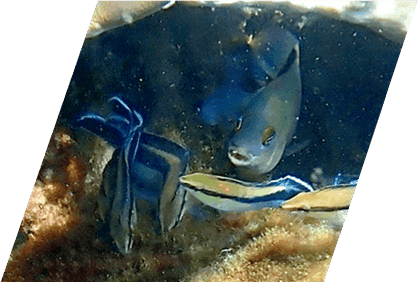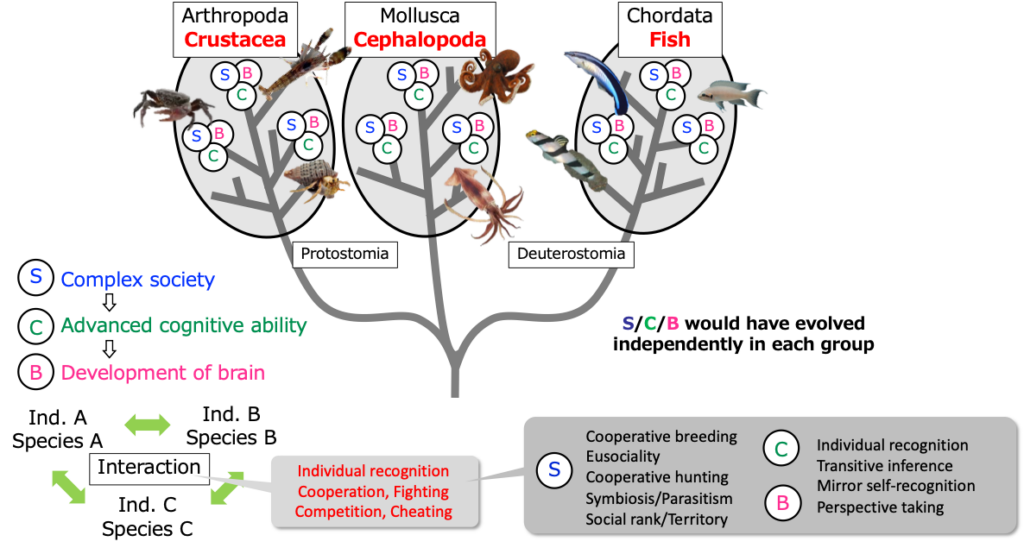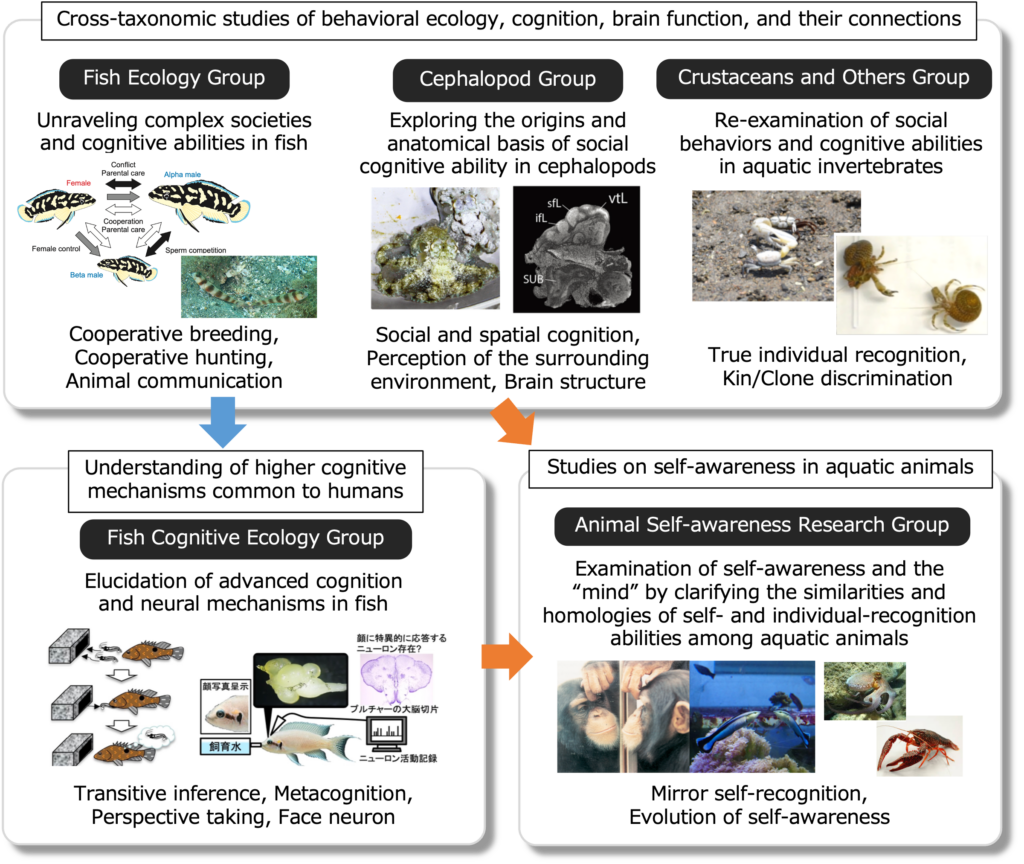Research Outline

Research Area:A new approach to studying the origins of animal intelligence and its relationship to complex societies
Abbreviated Name of Research Area:Cognitive Evolutionary Ecology
Head Investigator:Takahashi Kohji(Kyoto University, Field Science Education and Research Center, Assistant Professor)
Purpose and Background of the Research
●Research outline [Exploring the intelligence of aquatic animals]
It has long been believed that animal intelligence is limited to terrestrial vertebrates, including humans. Recently, however, this conventional view has begun to be shattered by the discovery of a series of unexpected forms of intelligence in aquatic animals. It is difficult to explain the intelligent behaviors that behavioral ecologists often encounter solely through innate release mechanisms and/or associative learning, which is the subject of animal psychology. Our aim is to reconsider the intelligence of animals in general, including humans.
The social intelligence hypothesis was originally proposed to explain the evolution of intelligence in primates. The hypothesis suggests that social complexity is the main selective force for the evolution of sophisticated intelligence and developed brain functions in animals. In this light, aquatic animals, which have strong ties with other individuals in their complex societies, must have evolved the advanced cognitive abilities and brain functions that make these abilities possible. We have explored the intelligence of aquatic animals such as fish, cephalopods, and crustaceans, based on the social intelligence hypothesis, and established a new discipline, ”cognitive evolutionary ecology,” which integrates behavioral ecology, comparative cognitive science, and neuroscience to overturn conventional ideas on animal intelligence.

Expected Research Achievements
●Research Policy
Our project aims to clarify the connections among behavioral ecology, cognition, and brain function in aquatic animals. We have five groups of approaches. Based on the findings from the fish ecology, cephalopod, and crustaceans and others groups, which examine cross-taxonomic cognitive abilities based on behavioral ecology, and the fish cognition group, which aims to understand higher cognitive abilities common to humans and to elucidate their neural mechanisms, the animal self-awareness group is used to conduct a cross-taxonomy study of self-recognition, a form of higher-order cognition, to understand the intelligence of aquatic animals.

●Expected scientific impacts
1.Better understanding of social behavior and cognitive abilities in aquatic animals
2.A break from the conventional view of animal intelligence
3.Contribute to our understanding of human intelligence by reconsidering cognition, brain structures, and functions in animals
4.Have an impact on disciplines such as medicine, pharmacology, and psychology, leading to the development of new technologies in AI and medicine